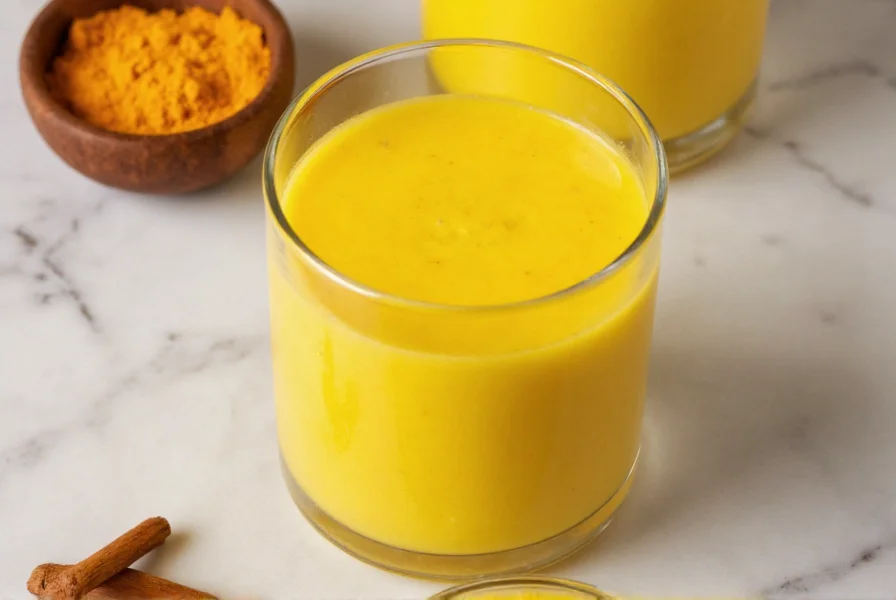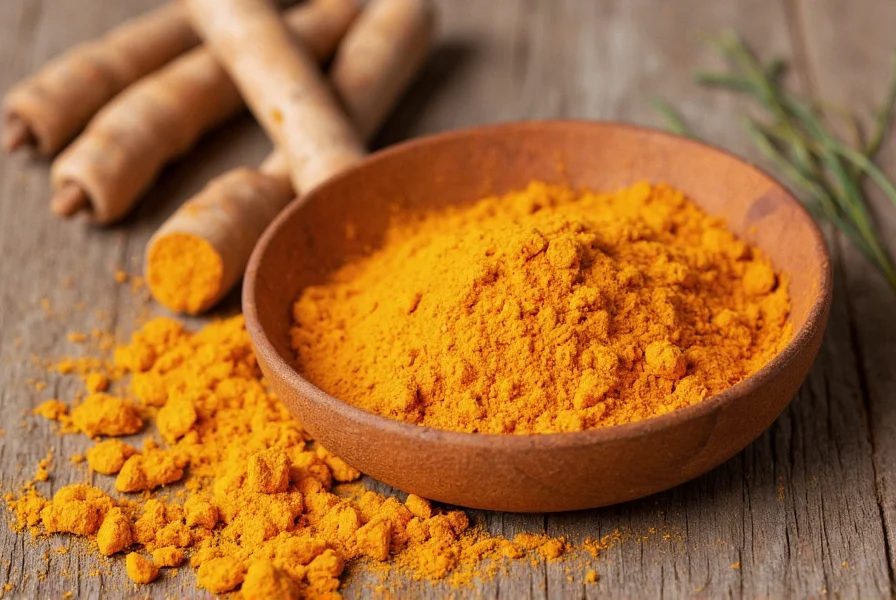For centuries, turmeric has been a staple in traditional medicine and culinary practices across Asia. Modern science is now validating many of these traditional uses while revealing important nuances about how and when turmeric delivers measurable health benefits. This comprehensive analysis examines the current scientific consensus on turmeric's effects, separating evidence-based benefits from overstated claims.
The Science Behind Turmeric's Health Properties
Turmeric's primary bioactive compound, curcumin, constitutes about 2-8% of the spice and accounts for most of its studied health effects. Curcumin functions as a potent anti-inflammatory agent and antioxidant, with research showing it may inhibit multiple molecules involved in inflammation pathways. However, curcumin's low bioavailability presents a significant challenge—when consumed alone, it's poorly absorbed into the bloodstream and rapidly metabolized.
Evidence-Based Health Benefits of Turmeric
Multiple clinical studies have investigated turmeric's effects across various health conditions. The strongest evidence supports benefits in these areas:
| Health Benefit | Scientific Evidence Level | Key Research Findings |
|---|---|---|
| Anti-inflammatory effects | Strong | Multiple studies show curcumin reduces inflammatory markers like CRP and IL-6, comparable to some anti-inflammatory medications in specific conditions |
| Osteoarthritis management | Moderate to Strong | Clinical trials demonstrate reduced pain and improved function, particularly in knee osteoarthritis |
| Antioxidant capacity | Strong | Curcumin boosts the body's own antioxidant enzymes while neutralizing free radicals directly |
| Mood support | Emerging | Preliminary research suggests potential benefits for depression, but larger studies needed |
Limitations in Current Turmeric Research
While promising, turmeric research has significant limitations that consumers should understand. Many studies use curcumin concentrations far exceeding what's achievable through dietary turmeric alone. A typical curry contains only 20-30mg of curcumin, while most clinical trials use 500-2,000mg of standardized curcumin extracts.
Additionally, research on turmeric's effects for specific conditions like cancer prevention or Alzheimer's disease remains preliminary. Most evidence comes from cell studies or animal models, with limited human clinical trials. The National Center for Complementary and Integrative Health states that while laboratory studies show promise, "there's little strong evidence from studies of people to support these claims."
Maximizing Turmeric's Benefits: Practical Considerations
To overcome curcumin's poor bioavailability, research shows these strategies significantly enhance absorption:
- Combine with black pepper: Piperine in black pepper increases curcumin absorption by up to 2,000%
- Consume with healthy fats: Curcumin is fat-soluble, so pairing with oils, avocado, or nuts improves uptake
- Heat activation: Gentle cooking helps release curcumin from the turmeric root

Potential Side Effects and Medication Interactions
Turmeric is generally safe when consumed in food amounts, but higher doses from supplements may cause:
- Digestive issues like nausea or diarrhea (typically at doses above 1,000mg)
- Increased bleeding risk when combined with blood thinners like warfarin
- Interference with certain chemotherapy drugs
- Potential gallbladder contractions in people with gallstones
Individuals with diabetes should monitor blood sugar closely, as turmeric may enhance medication effects. Those scheduled for surgery should discontinue high-dose turmeric two weeks beforehand due to bleeding risk.
Evidence-Based Recommendations for Turmeric Use
Based on current research, these guidelines provide a balanced approach to incorporating turmeric:
- For general health: 1-3 grams of culinary turmeric daily (about ½-1½ teaspoons) in cooking
- For inflammation management: 500mg of curcumin with piperine, taken twice daily (consult physician first)
- For optimal absorption: Always combine turmeric with black pepper and a healthy fat source
- Special populations: Pregnant women, those with gallbladder issues, or taking medications should consult healthcare providers
Remember that turmeric works best as part of a balanced diet rather than a standalone solution. Whole turmeric root or powder provides additional beneficial compounds beyond just curcumin, making it potentially more effective than isolated supplements for some applications.
Conclusion: A Balanced Perspective on Turmeric
Turmeric offers genuine, science-backed health benefits, particularly for inflammation and antioxidant protection. However, its effectiveness depends significantly on proper preparation to enhance bioavailability and realistic expectations about what it can and cannot do. While not a miracle cure, incorporating turmeric strategically into your diet represents a valuable component of a comprehensive approach to wellness. Always consult with a healthcare provider before using turmeric supplements, especially if managing chronic health conditions or taking medications.
Is turmeric good for inflammation?
Yes, multiple clinical studies confirm turmeric's anti-inflammatory properties. Curcumin, turmeric's active compound, inhibits inflammatory pathways similarly to some non-steroidal anti-inflammatory drugs (NSAIDs), but without the same side effect profile. Research shows significant reductions in inflammatory markers like CRP, particularly when using standardized curcumin extracts with enhanced bioavailability.
How much turmeric should I take daily for health benefits?
For culinary use, 1-3 grams (½-1½ teaspoons) daily provides general health benefits. For targeted therapeutic effects like inflammation management, research typically uses 500mg of standardized curcumin with piperine, taken twice daily. Always consult your healthcare provider before starting high-dose supplementation, as individual needs vary based on health conditions and medications.
Can turmeric interact with medications?
Yes, turmeric can interact with several medications. It may enhance blood thinners like warfarin, increasing bleeding risk. Turmeric might also affect diabetes medications by lowering blood sugar further, and could interfere with certain chemotherapy drugs. If you take any prescription medications, consult your healthcare provider before using turmeric supplements.
Does turmeric really help with arthritis?
Clinical evidence supports turmeric's benefits for osteoarthritis, particularly knee osteoarthritis. Multiple studies show reduced pain and improved function compared to placebo, with effects comparable to some conventional treatments. A 2016 review in the Journal of Medicinal Food concluded that curcumin extracts provide statistically significant improvements in arthritis symptoms, though optimal dosing and formulation require further research.
What's the best way to absorb turmeric?
To maximize turmeric absorption: 1) Always combine with black pepper (piperine increases absorption up to 2,000%), 2) Consume with healthy fats like olive oil or coconut milk since curcumin is fat-soluble, and 3) Gentle heating during cooking helps release curcumin from the turmeric root. Standardized supplements often include these enhancers, but for culinary use, making 'golden milk' or adding turmeric to oil-based sauces optimizes bioavailability.
Frequently Asked Questions
Is turmeric good for inflammation?
Yes, multiple clinical studies confirm turmeric's anti-inflammatory properties. Curcumin, turmeric's active compound, inhibits inflammatory pathways similarly to some non-steroidal anti-inflammatory drugs (NSAIDs), but without the same side effect profile. Research shows significant reductions in inflammatory markers like CRP, particularly when using standardized curcumin extracts with enhanced bioavailability.
How much turmeric should I take daily for health benefits?
For culinary use, 1-3 grams (½-1½ teaspoons) daily provides general health benefits. For targeted therapeutic effects like inflammation management, research typically uses 500mg of standardized curcumin with piperine, taken twice daily. Always consult your healthcare provider before starting high-dose supplementation, as individual needs vary based on health conditions and medications.
Can turmeric interact with medications?
Yes, turmeric can interact with several medications. It may enhance blood thinners like warfarin, increasing bleeding risk. Turmeric might also affect diabetes medications by lowering blood sugar further, and could interfere with certain chemotherapy drugs. If you take any prescription medications, consult your healthcare provider before using turmeric supplements.
Does turmeric really help with arthritis?
Clinical evidence supports turmeric's benefits for osteoarthritis, particularly knee osteoarthritis. Multiple studies show reduced pain and improved function compared to placebo, with effects comparable to some conventional treatments. A 2016 review in the Journal of Medicinal Food concluded that curcumin extracts provide statistically significant improvements in arthritis symptoms, though optimal dosing and formulation require further research.
What's the best way to absorb turmeric?
To maximize turmeric absorption: 1) Always combine with black pepper (piperine increases absorption up to 2,000%), 2) Consume with healthy fats like olive oil or coconut milk since curcumin is fat-soluble, and 3) Gentle heating during cooking helps release curcumin from the turmeric root. Standardized supplements often include these enhancers, but for culinary use, making 'golden milk' or adding turmeric to oil-based sauces optimizes bioavailability.











 浙公网安备
33010002000092号
浙公网安备
33010002000092号 浙B2-20120091-4
浙B2-20120091-4